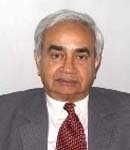Reservations for OBCs & Consequence Management
06 Jun, 2006 · 2031
PR Chari examines the issue of reservations for the OBCs, and posits that it will be detrimental to maintaining standards within the professional educational system.
Hundreds of articles in newspapers, innumerable talk shows on TV channels, and dozens of seminars hosting the chatterati have analyzed the government's decision to apportion 27 per cent of the seats in state-aided educational institutions for Other Backward Classes (OBCs), besides 15 per cent and 8 per cent seats for the Scheduled Castes and Scheduled Tribes. The agitation for and against this measure has abated, but an uneasy peace prevails on the campuses.
The debate has proceeded on expected lines pitting the imperative of respecting merit against the obligation to achieve social justice. These issues were rehearsed when the Mandal Commission Report was sought to be implemented by the VP Singh government in 1990. There is hardly anything new being urged now. As Shakespeare's King Lear said, "There is nothing so tedious as a twice-told tale."
There was fair agreement; however, regarding the nexus of the debate with personal ambitions and that Arjun Singh had raised the reservation issue to advance his own political fortunes, and not those of the downtrodden OBCs. It was clear, however, that he would not have raised this issue without a nod from 10 Janpath. Can this move procure the OBC votes for the Congress in the upcoming elections to the UP Legislative Assembly? Or, will it result in the OBCs continuing to vote for the Samajwadi Party, while the upper castes (Brahmins, Kshatriyas and Vaishyas) become alienated and vote against the Congress? The jury is out on this question till the UP elections are held next year, but Manmohan Singh has adroitly been left to handle the present turmoil. His decision to increase seats in the affected educational institutions, to accommodate general category candidates, reveals his desperation to remedy a situation, that is going out of control, by throwing money at the problem.
That these shenanigans have affected India's image abroad is of no concern to the political class. The academic quality of India's prestigious educational institutions is irrelevant for them. Note the thundering silence of the political class on these issues, lest it affect their own political fortunes. Nor are they concerned with the obvious, but serious, consequences of these decisions for professional education in the country.
What are these consequences? Much greater transparency is needed to inform the people how the government proposes to overcome them. There are no statistics, for instance, to reveal the dropout rate for students admitted to professional colleges on reservation quotas or how many years, on the average, they take to pass out of these colleges. This may be illustrated through the prism of medical education. The standards in respect to teaching in medical colleges are prescribed by the Medical Council of India, which lays down the minimum number of beds needed per student in teaching hospitals attached to medical colleges as well as the minimum number of nursing and auxiliary staff, which is also linked to bed strength. An appreciable increase in bed strength, nursing and auxiliary staff would be necessitated by either extending the existing hospitals or establishing new teaching hospitals. While many existing teaching hospitals are deficient in these facilities, this begs the question: should one plan to increase these existing deficiencies?
The problem of arranging for qualified teaching staff is also serious. The steady exodus of medical teachers from prestigious institutions like AIIMS to private hospitals or jobs abroad is not a secret. Consequently, a severe shortage of teachers persists in the existing medical colleges, even to the extent of 30-40 per cent. From where will qualified teachers be recruited to make up the existing shortages and cater for the intake of additional students? This situation gets compounded with the qualifications prescribed for medical teachers by the Medical Council of India, especially for special departments like Cardio-Thoracic or Plastic Surgery which requires them to possess a post-graduate degree in General Surgery, followed by another post-graduate degree in the specialisation. In the absence of qualified teachers, should these departments be run with unqualified teachers or, should they shut down?
Glib statements have been made that additional facilities would be created, step-by-step, for first year entrants, then for the second year and so on. Should the integrity of the testing system be maintained, however, there would be considerable bulges in the years when the tough first and second MBBS examinations are held, adding to all these problems.
The case being made here is not for denying social justice, but for not compromising the educational system by ensuring the maintenance of standards at all levels, beginning with elementary education and then at middle and high school levels. Relaxing the admission norms for entry into the most coveted professional institutions might be good politics, but this would degrade their educational standards without achieving any discernible social purpose. The UP elections may illustrate the futility of this exercise in populism.


